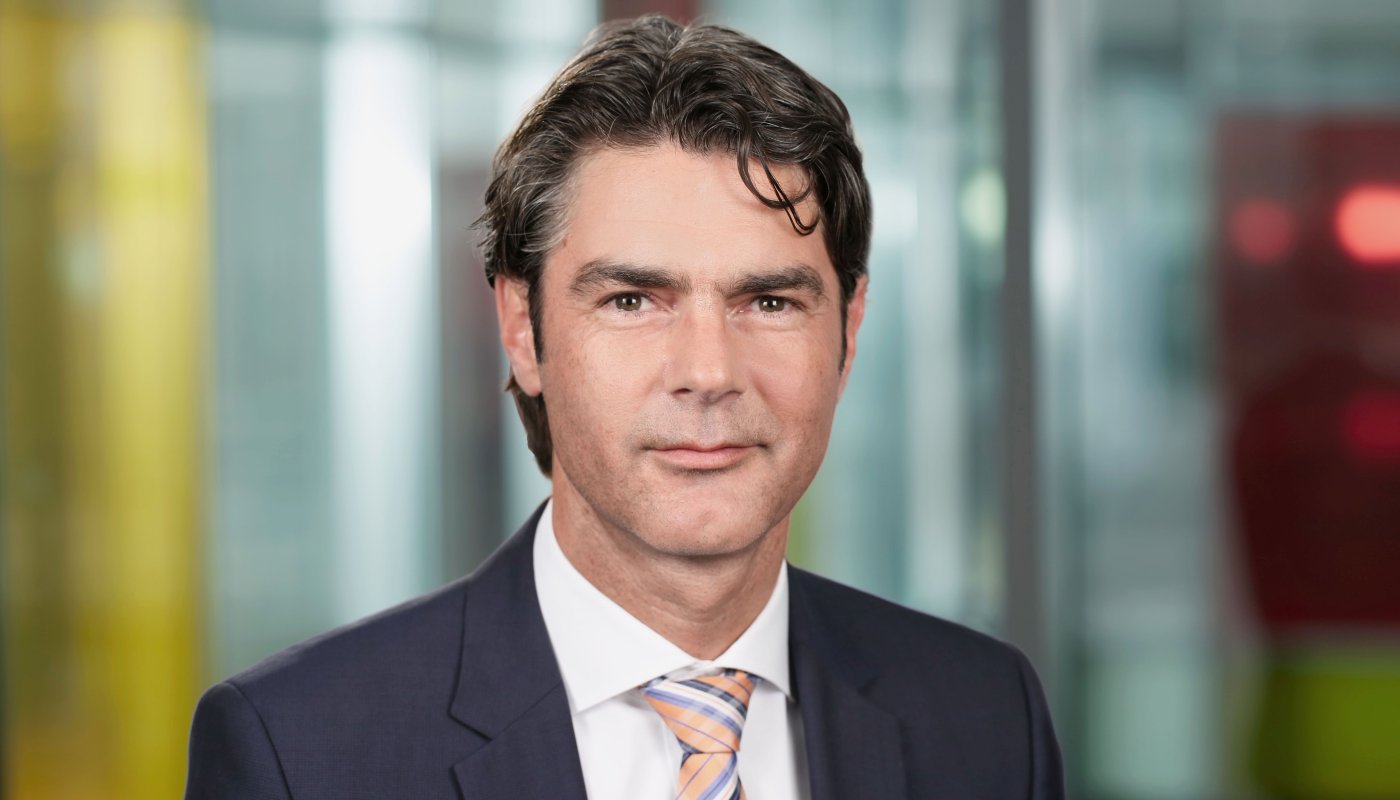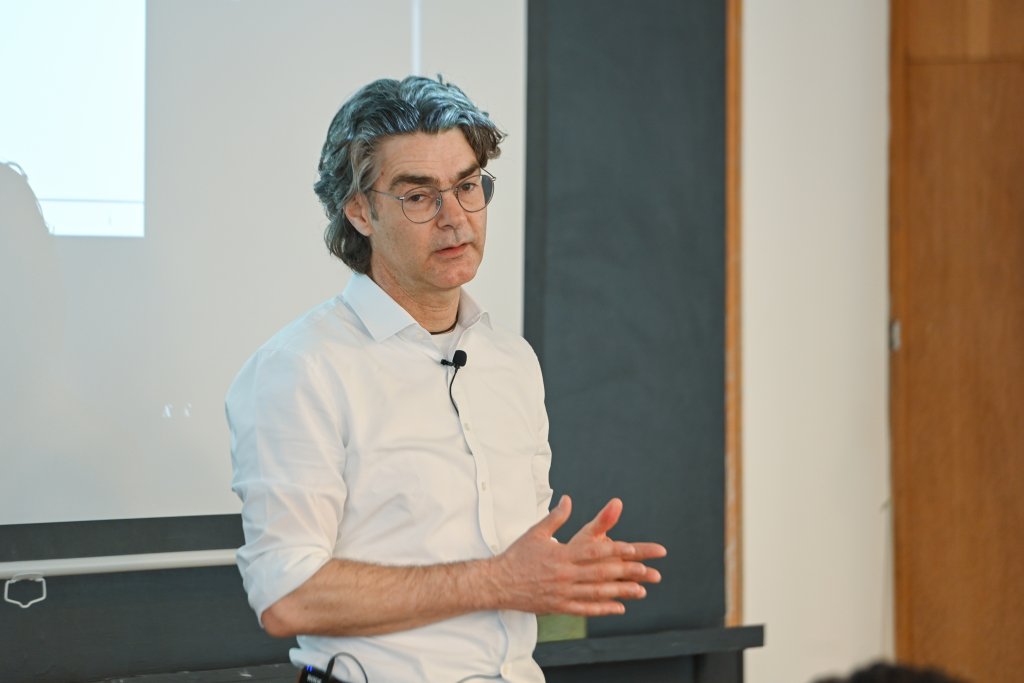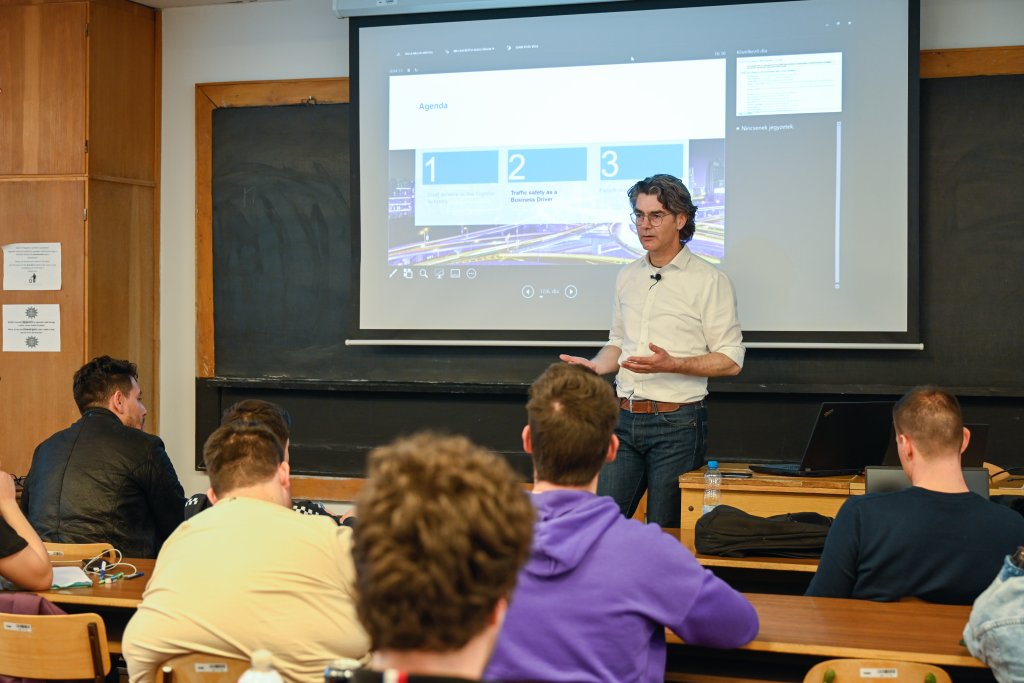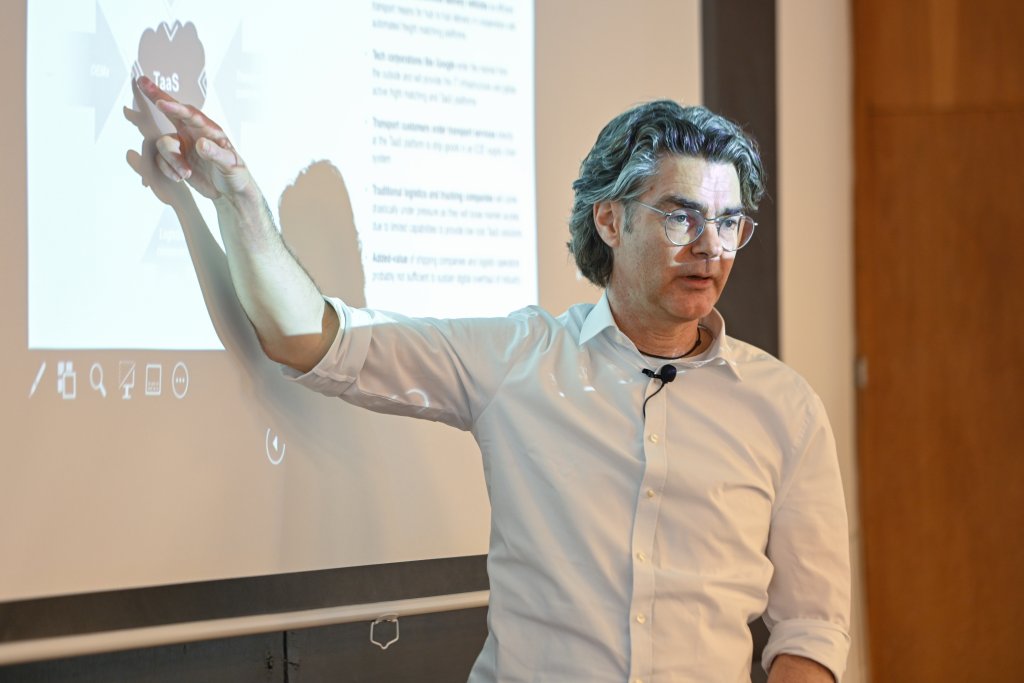News feed
An engineer should be motivated by not only the technology, but also the success of the product
2024. 08. 13.
Multinational company Knorr-Bremse is re-launching its lecture series at BME in the autumn, where students will gain in-depth knowledge of the latest developments in the truck industry and the changes in the sector through real-life case studies. We asked guest lecturer Jürgen Steinberger, among others, about how a technical university should respond to technological changes.
You graduated as a physicist - how did you turn to engineering and manufacturing?
Yes, I graduated as a physicist at the Tecnhical University of Munich, but got my PhD as an engineer after post-graduate studies, having worked for three years at Daimler. Ever since I have always worked at the interface between engineering and physics. After I joined Knorr-Bremse I participated in a management development programme.
And why is teaching so important to you that you're willing to give a multi semester course in the exotic city of Budapest?
For multiple reasons. One aspect is my father was a professor at the University of Munich. So when I was raised I could see how much fun it was for him to do this. Secondly, I strongly believe in certain sequences in life. The first is when you learn things: you go to school and then to university. The second sequence is when you gain experience and really do the work and then you get older. I'm already 54, and when you get older it's time for giving back to the people what you learned. I also think it's very rewarding when you are able to teach people about how to do things.
| Name of the subject: „Synergy of Engineering and Business: The Disruptive Transformation of the Truck Industry as a case study 2” (Completing „Synergy of Engineering and Business: The Disruptive Transformation of the Truck Industry as a case study 1” is not a prerequisite for admission.) Lecturer: Dr. Jürgen Steinberger, former Chairman of the Board of Directors, Knorr-Bremse Commercial Vehicle Sector Subject code: BMEKOKKBsM8002-00 (3 credits) |
Why I do this in Budapest? One reason is that I I always had a very close relationship with the technical centre of Knorr-Bremse in Budapest. I was helping to build this up to the level where we are right now. I like the people working there, I strongly believe in their technical excellence. At the same time I also see that in Budapest we lack some expertise in product management and and project management. So we are more focusing on the engineering part, but working in this industry is more than just engineering. And last but not least, my daughter studied medicine at the Semmelweis University and she loved it here.
And how did you choose your course topic?
I think that the expretise of the people at our technical centre in Budapest is not broad enough with respect to product management and to understanding why certain decisions are taken and how to get to certain decisions. They understand the technical details, but it's also important to understand the background: why you do things. That's why I decided to broaden up this course and give insights on what is going on in the truck industry. Results and consequences, but also the background – and then what do you need to do in order to manage. Because it's not only important to come up with the right technical solution. It's also important to decide where to focus your resources.

In what ways do you think it is important to strengthen the business perspective in engineering education?
It's always a question of where you wanna work at. If you wanna work as a hardcore engineer, it's not completely necessary. At the same time, I believe that an engineer is not only motivated by the result he's working on, he should also be motivated by what will be the success of the product under development. In order to get this motivation, you need to understand the background: why the company decided to go in a certain direction. That increases the motivation of the people.
According to the course profile, the focus is shifting from the classical mechanical expertise towards software and system engineering – how exactly should a technical university respond to this phenomenon?
This is a broader question, I can only respond from an industry perspective. We can see that the biggest challeng we're currently having when developing a brake system is how to set up the system architecture in the right manner, how to cope with the topic of functional safety and handle the ISO 26262 properly. But what makes the ultimate difference is to make it very cost effecient as well. Integrating hundreds of sensors and and thousands of control functions does not make your system more robust but makes it extremely expensive. So the task is to set up this architecture in a way that it is very cost efficient and still safe. One needs to have a proper understanding of how to do this the best way, and those people are very difficult to find. This is a mindset issue, and that's why I think that BME and also the other universities need to work on teaching not only the ISO 26262 but also the consequences. The same relates to software engineering. Anyone can code, it’ is not a big issue, but to set up a proper software architecture and then set up a process of developing an testing certain modules, and then integrating the software into a system – that is something that also needs to be learned.

That’s clear. Can you give a specific example of what exactly makes your course useful for an engineering student?
My aim is that a student leaving my course understands the bigger picture of the truck industry. Understands certain decisions I made at Knorr-Bremse in the last eight years, and what kind of connections those decisions have with the technical projects we're setting up.
Why does Knorr-Bremse have such a large R&D centre exactly in Hungary? It is not very common from a German company of that size.
Knorr-Bremse was among the first companies to come here, we started to build this up in 1996. We worked together with BME that time. There was a professor named László Palkovics and he basically he built up this technical centre in Budapest. So we did this straight away with strong local expertise and by doing this we maintained a very strong link with BME, getting more and more good professionals. It's always an interaction, when the knowledge and the expertise is growing, then also the responsibility is. We are not using the site of Budapest for engineering services only, we are using it to do complete projects. This is a big difference compared to other sites. That's also one of the reasons why I want to keep the strong ties between between the BME and Knorr-Bremse.

What advice would you give to future engineers concerning their studies? What subjects should they focus on?
It’s hard to answer, because it's always a question of where do you want to end up? If you want to be, for example, a technical project manager, or a technical team leader or maybe even a product manager, then it’s not only about sitting on the CAD and designing something – your management skills are also important. You will always have interactions with suppliers, you will need to communicate with them and with your colleagues. So, of course, be excellent in your studies but also, don't underestimate the soft skills.
pg
